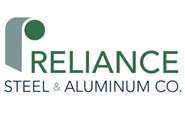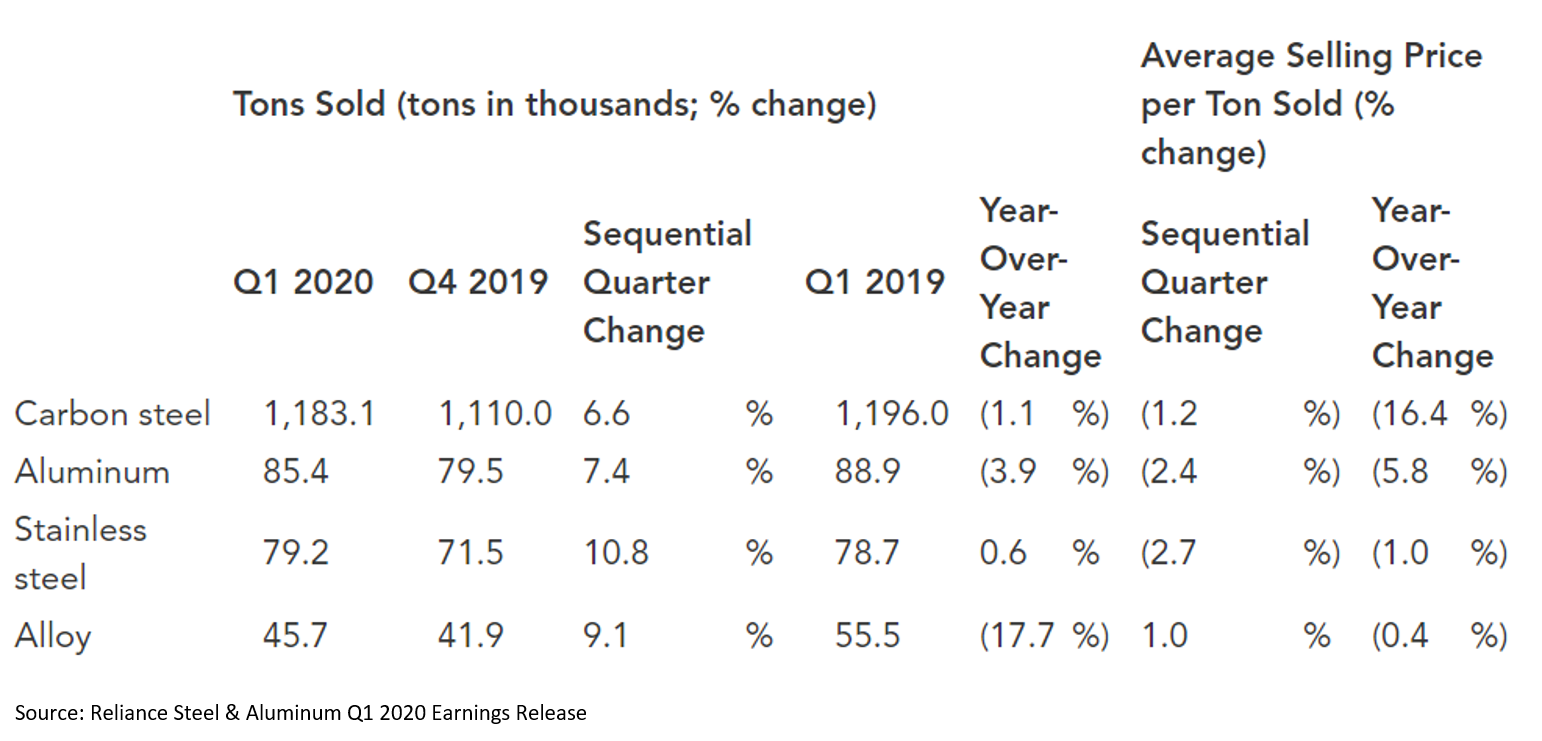Market Segment

April 23, 2020
Reliance "Right-sizes Operations to Sustainable Levels"
Written by Sandy Williams
Reliance Steel & Aluminum said demand remains healthy, especially in construction, despite impacts from the COVID-19 crisis. The company posted net sales of $2.57 billion for the first quarter of 2020, a 13 percent decrease year-over-year due to lower metal prices. Net income was $61.7 million, down from $190.1 million in the same quarter last year. Average selling price declined 1.2 percent from Q4 2019 to $1,727 per ton as a result of downward pricing pressure due to the pandemic. The company shipped 1.469 million tons, up 6.8 percent from Q4 but down 2.2. percent from Q1 2019.
“We have taken difficult but appropriate actions in response to the COVID-19 pandemic, including workforce reductions, to right-size our operations to sustainable levels,” said CEO Jim Hoffman. “We believe this will allow us to emerge from this current crisis intact, prepared and positioned to face new business realities, including the ability to quickly ramp up with our customers and suppliers, and to recall laid off employees when the time comes. Although the current situation is unlike anything we have experienced, we believe the resilience of our business model will help us manage through this particularly challenging time just as it has in the past.”
Since March 1, Reliance has reduced its workforce by 11 percent or 1,600 people including permanently closing three of its energy businesses that were operating below par. The company has taken the unprecedented move to extend health care benefits to support employees and families during the crisis. Hoffman says employees were told they could be called back quickly. “We think we have the right level of headcount right now. We have some really good people we don’t want to go elsewhere. We take care of them the best we can.”
Executive Vice President and CFO Karla Lewis noted that severe reductions were taken in 2008 and 2009 when the company took out 23 percent of its workforce and 50 percent of its inventory over a nine-month period. This time the company anticipates coming out of the crisis fairly quickly, putting employees back to work and being able to support its customers.

Market conditions have been strong in nonresidential construction, Reliance’s largest end market. Some second-quarter projects have been deferred, but the company feels confident that demand will recover after shelter-in-place is lifted.
Toll processing started the year strong but was abruptly cut short by the sudden closure of automotive manufacturers in mid-March resulting in a 50 percent reduction in business. Hoffman said there is always hope that an infrastructure spend is on the horizon. “When that happens, it will be good for the market and is good business for us.” Toll processing for canned beverage and appliance remains steady.
The commercial portion of aerospace declined directly as result of the COVID-19 outbreak. Bill Sales, executive vice president of operations, says Airbus build rates are down about a third and Boeing rates are less clear. Reliance is seeing order cancellations and shrinking backlogs. “We can see orders sinking as much as 50 percent,” he said.”
Aerospace on the defense side has been strong and is expected to continue. Reliance’s contract for the joint strike fighter program was awarded a five-year extension, adding $660 million in the time frame through 2026. About 40 percent of Reliance aerospace business is commercial and the balance is defense.
The company reports demand fell significantly in both agricultural and construction equipment in March and the outlook for the sector is uncertain.
Semiconductor showed steady improvement during the first part of the year and then dropped 20 percent in the first two weeks of April compared to March levels.
Hoffman said the company has seen some reshoring of manufacturing and expects to see more returning to the U.S. in response to supply chain disruptions due to the COVID crisis. Lewis noted that Reliance has picked up some new business from customers downstream who are adjusting sourcing and looking for new partners to help them produce their products.
Due to uncertainty in the macro economy and effects of the coronavirus pandemic, Reliance Steel did not provide guidance the for second quarter. Lewis did offer a general outlook:
“We anticipate that shipment levels in the near-term could decline even further than the April levels previously discussed. And that metal pricing will remain under pressure and could fall further from current levels. In this type of environment, we expect competition to increase, which could lead to some erosion of our currently strong gross profit margin. To offset lower shipment levels, we have reduced our workforce by approximately 11 percent, which is expected to reduce our SG&A expenses beginning in the second quarter of 2020, net of any related severance and extended benefit coverage costs. We expect further workforce reductions if our shipment levels continue to decline. In addition, lower profitability levels will result in reduced performance-based compensation expense. We are also focused on rightsizing our inventory to meet current shipment levels. We have worked with our mill partners to cancel and push out certain orders and expect to reduce our mill purchases in the near term.“







